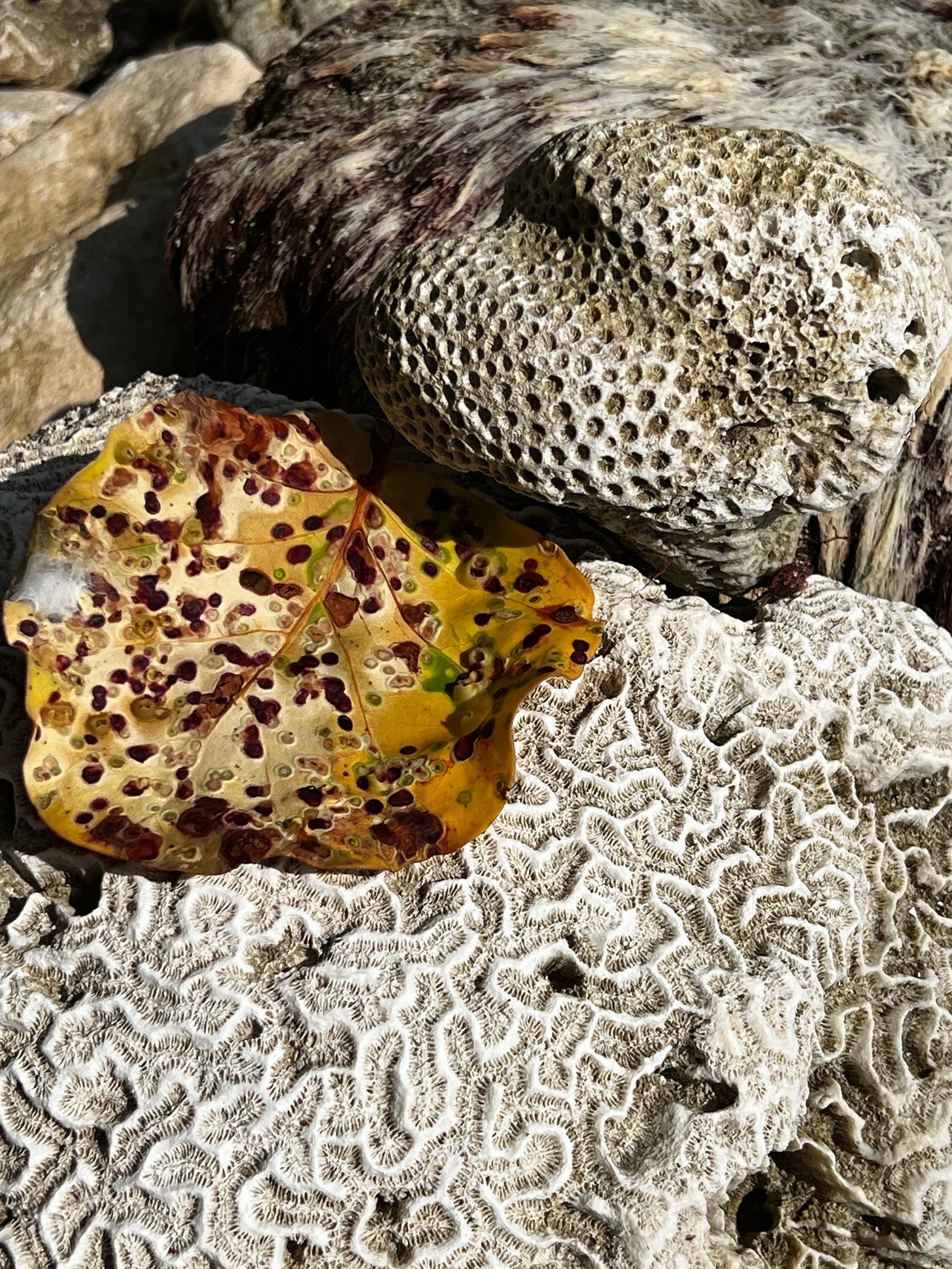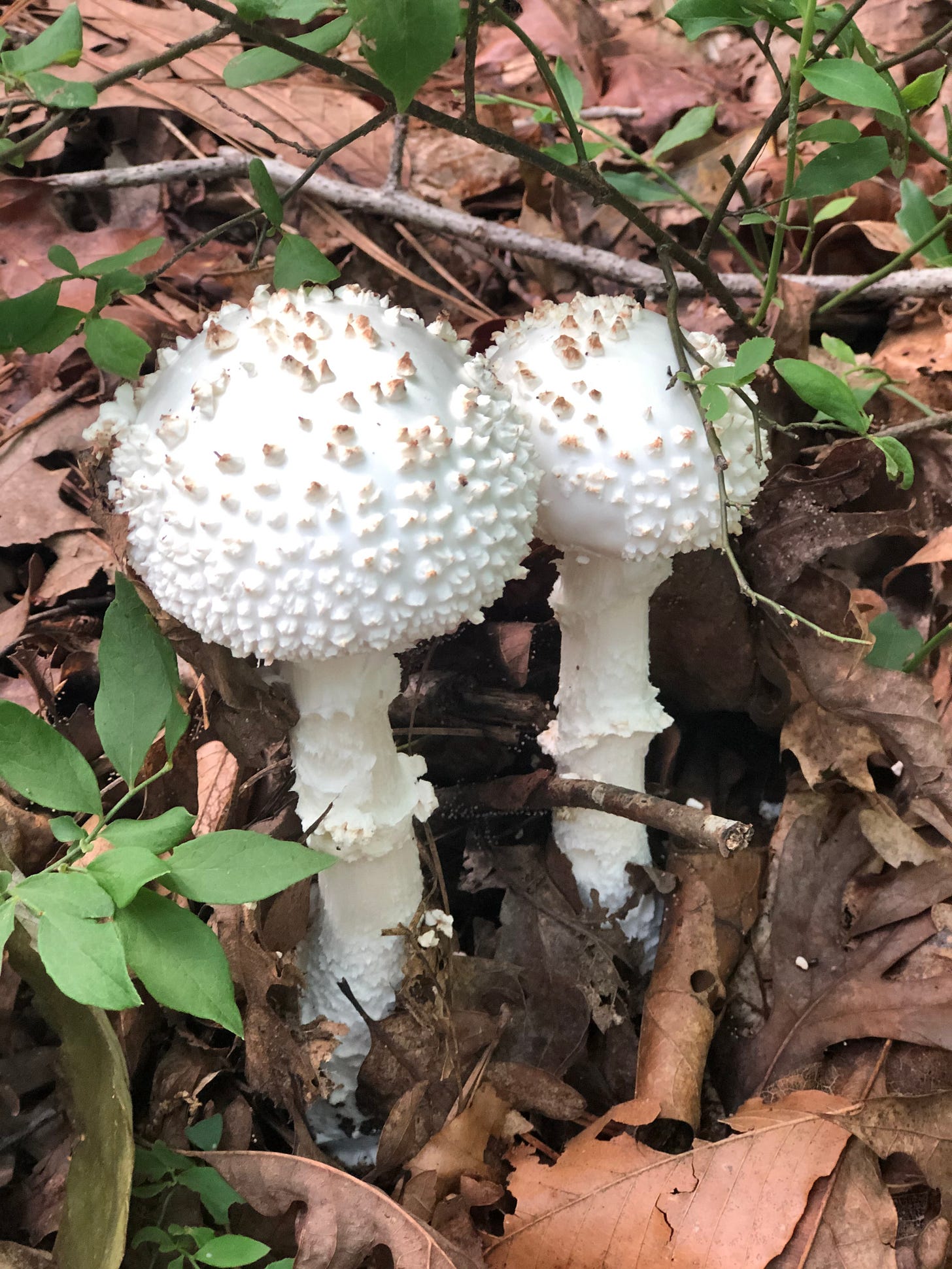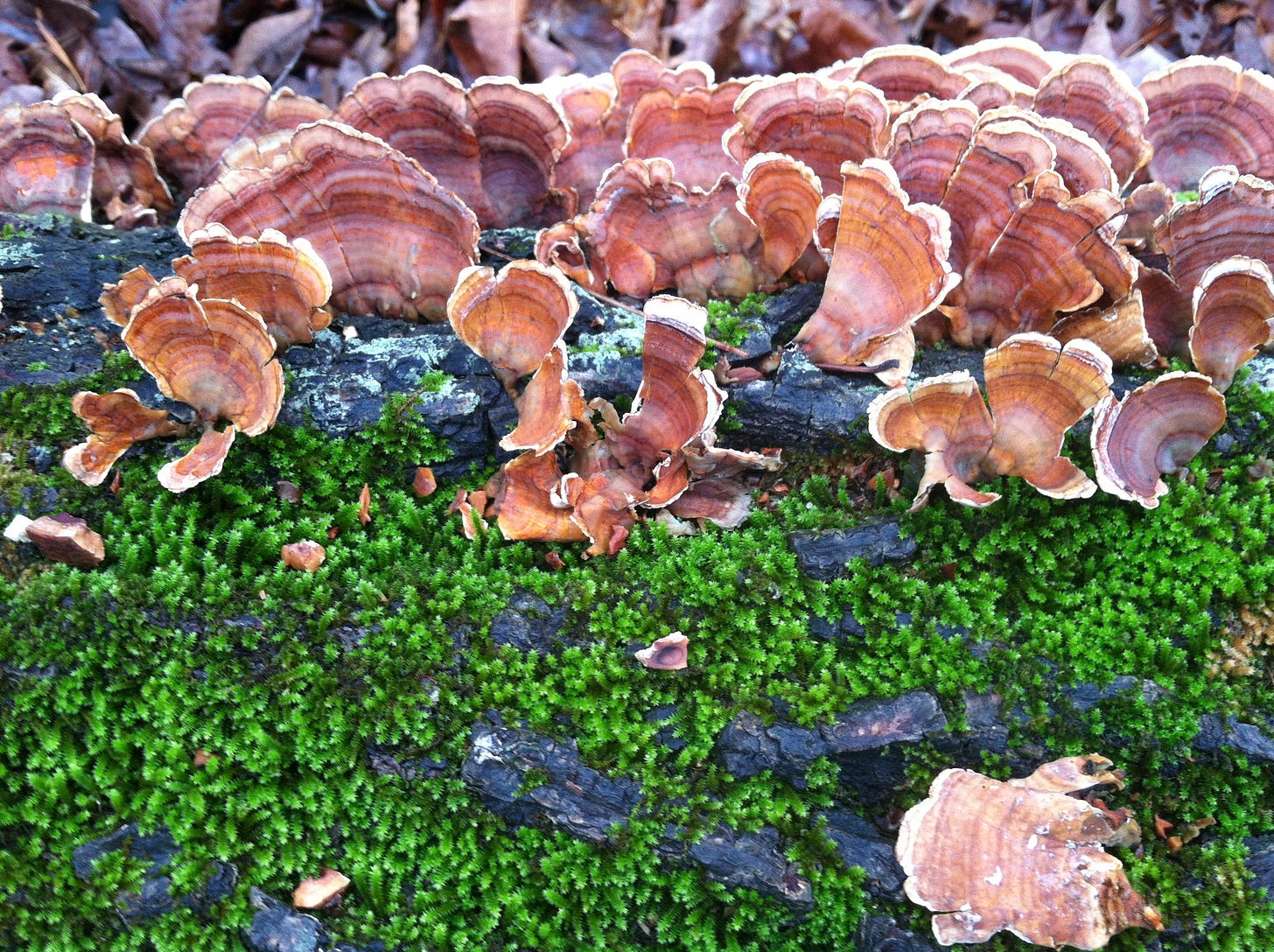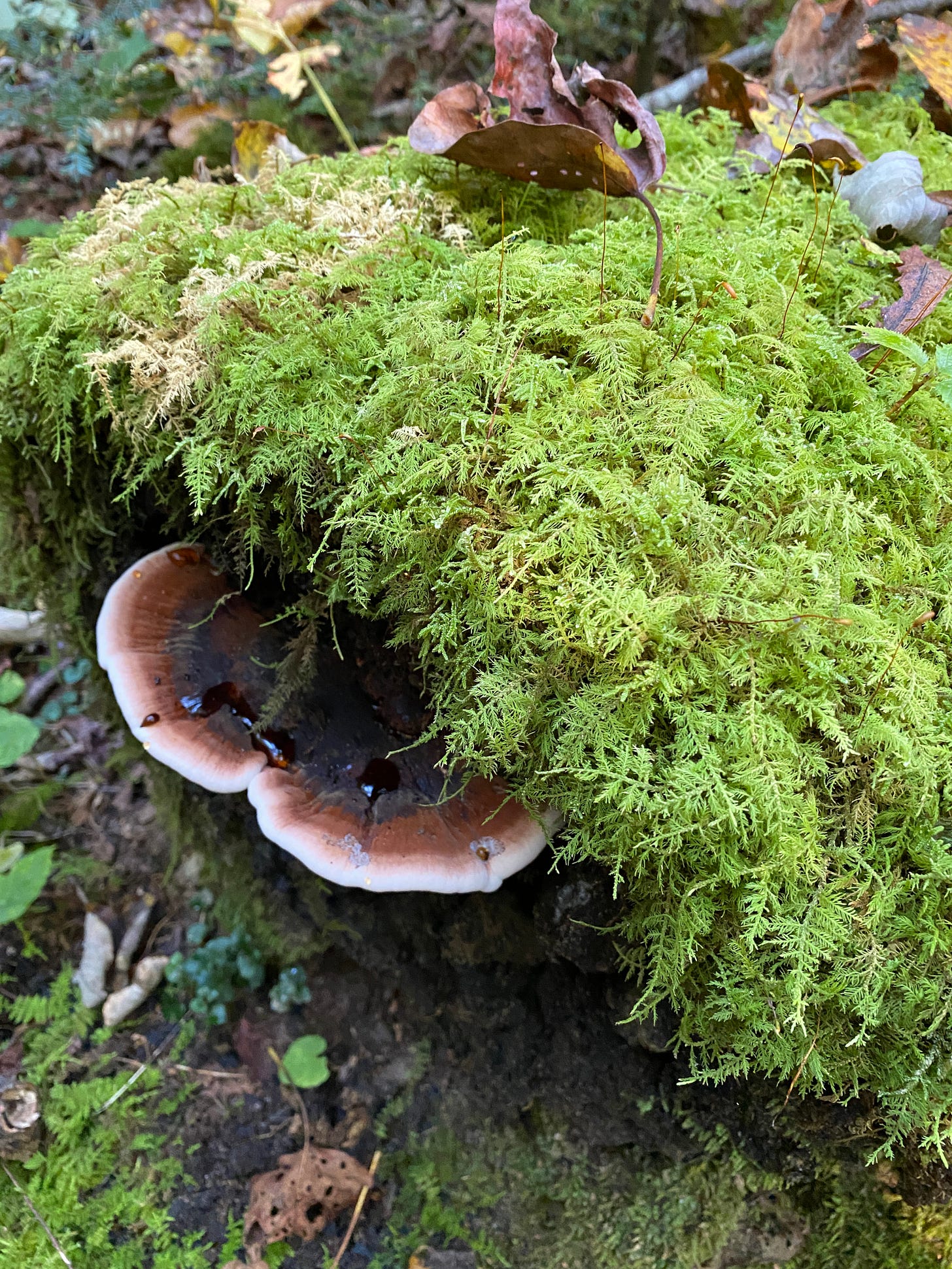Coffee, brain microplastics, my Op-Ed in USA Today
And appreciating nature's small wonders
noticing the little things
MEDICAL NEWS
“Coffee’s Sweet Spot”: This headline in Medscape grabbed me because I love coffee and I’m always looking for articles that support my habit.
That’s called confirmation bias.
The article turned out to be a fun read by Dr. F. Perry Wilson, the director of Yale's Clinical and Translational Research Accelerator - so he’s got good credentials. He did a deep dive into the latest science about coffee’s health effects on cardiovascular outcomes, inspired by a recent large prospective study of 172,315 (for caffeine analysis) and 188,091 (tea and coffee analysis) participants.
The bottom Line: The sweet spot for daily consumption is around 3 cups of coffee or tea (or 250 mg of caffeine). People who consume this amount were found to have a 40% reduction in cardiovascular disease. That’s good news for this coffee lover.
Reproductive rights: I wrote this Op-Ed appearing in today’s USA Today to share what’s happening with abortion access from the perspective of an OB/GYN in Georgia.
My inspiration to write this piece was this realization I had in clinic: “As an OB-GYN in the South, I check a patient’s address before reviewing her medical history. That’s not normal.” My inspiration to submit it was Trump boasting during the presidential debate about how great it is that abortion is being decided by the states.
Patchwork care decided at the state level is a disaster. I’d submitted this before the recent tragic news of the deaths of Amber Nicole Thurman and Candi Miller in Georgia resulting from our state’s abortion ban.
As it happens, Trump is speaking in Georgia today and I contributed a quote found in this press release on behalf of the Committee to Protect Healthcare, a group of advocates that “fights to expand health care access, lower costs for patients, and protect reproductive rights.”
My previous Op-Eds on reproductive rights can be found here, under “essays.”
Our brains are plastic. This phrase is positive when we’re talking about our brain’s capacity for being flexible and recovering from injuries. But we may have actual plastic particles in our brains, and that’s not so good.
Plastic particles are everywhere. The 4000 chemicals in plastic are not good for our health. Earlier this year a study published in the New England Journal of Medicine linked the level of microplastics in the plaque lining of carotid arteries, which funnel blood to the brain, with a higher risk of stroke, myocardial infarction, and death from any cause.
More recently, a study found microplastics in the brain, albeit the olfactory bulb, which is not related to cognition. But air pollution is a risk factor for dementia and plastic is a big part of pollution. Much of what you read on this topic will use phrases like risks are not completely known. But we do know that plastic and pollution contribute to a wide variety of poor health outcomes.
So, remember these ways to decrease your exposure to plastic:
Avoid single use plastics: This includes plastic cutlery and liquids stored in plastic such as bottled water. A recent study found a quarter-million invisible nanoplastics particles in a liter of bottled water. Although plastics are found in tap water, the levels appear to be lower.
Shop in bulk, avoiding plastic wrapping.
Say no to straws.
Vacuum regularly: there are microplastics in dust
Avoid heating in plastic: Plastic releases chemicals into foods, and it’s just as easy to use glass. Also, if a food is labeled as “microwave safe” it means the container won’t melt in the microwave, not that it won’t transfer chemicals to your food.
Avoid single use coffee cups – they’re lined with plastics. This was news to me, and I don’t know if this applies to all disposable coffee cups.
I haven’t even touched on the harm plastic is doing to the environment, but this article points us to non-plastic substitutes for common items like kitchen sponges.
MOUNTAINS
Are you filled with wonder at the small details you observe in nature? The surprising colors, layers, and juxtapositions? I thought about this when I came across this video I took in Mexico of a grasshopper on a window. (The video may only play on the Substack website so it may open another tab).
Here are some other photos of tiny, wonderful surprises:
Smores or spores?
MORE
I’m happy to share that Tap Dancing on Everest has won another award!
Winner, Best Non-Fiction Adventure Book, International Readers’ Favorite Book Awards.
I received this note from someone I don’t know on Instagram yesterday: “Love your book, I bought 6 of them and gave them to all my best friends to enjoy. My mom is reading page by page very slowly, she told me she is dreaming of Everest. She is in her 70’s. She might just go!”
I’m overwhelmed when I hear someone is buying my book as a gift because they want to share the feeling of empowerment. The “Everest” in my story was not about being a mountaineer but about serving as the doctor for a remote Everest team in Tibet while still a medical student—and while full of self-doubt. My hope when I wrote my story was that it would empower folks to do things they didn’t feel good enough to do or perfectly ready or qualified or brave enough to do. It’s beyond my dreams when I hear that’s happening.
Come one, come all…










That was a great op ed! And I loved your book too!
Mimi! What a wonderful letter packed with all the tiny things in nature, good and bad. I am semi-obsessed with fungus and shrooms! Great pics. Gah! Three cups of coffee is a sweet spot! Hah! I'd never get any sleep. Speaking of, I recently watched a Masterclass series on sleep from sleep expert, neuroscientists and psychologist, Dr. Matthew Walker, who recommends not drinking caffeine (for better sleep) after noon and to check food labels for caffeine. Even decaf has a small amount. It's lovely to see you in my inbox and all the exciting writing you are doing. Good luck on the book tour. My review of Tap Dancing is in my latest letter on pARTake. xo